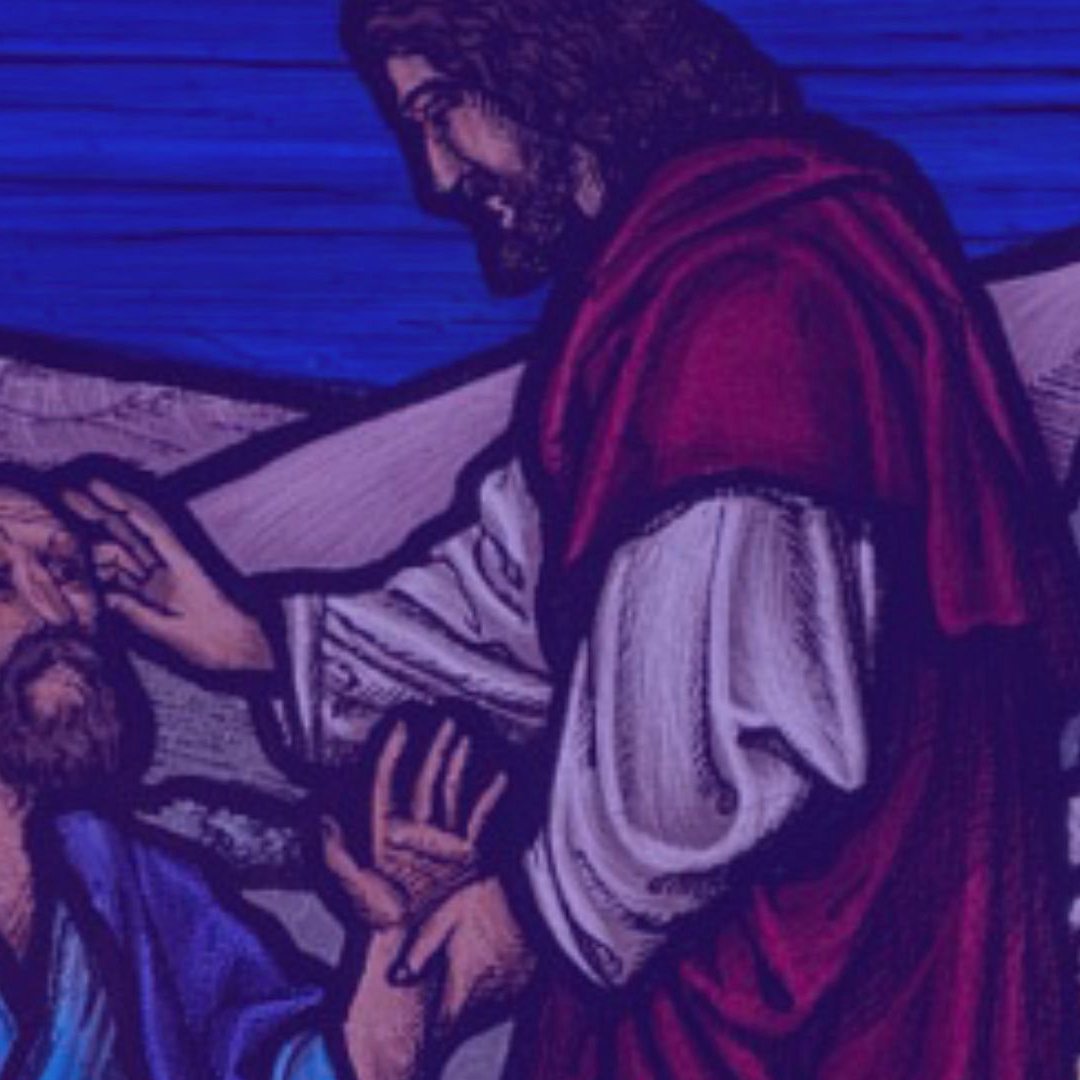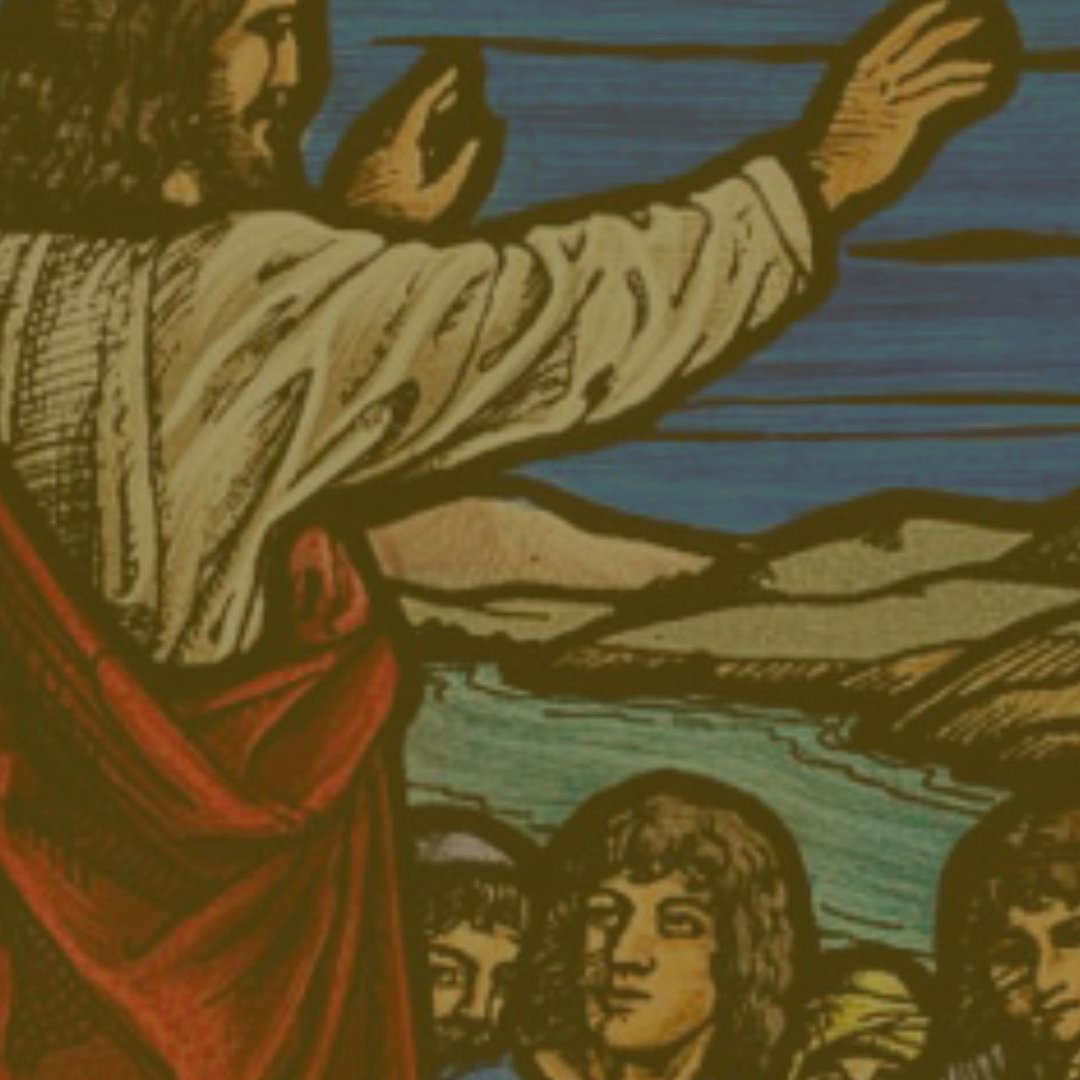Discover Cornerstone West Los Angeles » Sermons
Cornerstone West Los Angeles » Sermons

Cornerstone West Los Angeles » Sermons
Author: Cornerstone West Los Angeles
Subscribed: 234Played: 922Subscribe
Share
© 2025 Cornerstone West Los Angeles
Description
Sunday Morning teachings from Cornerstone Church West Los Angeles located in West Los Angeles, CA. Visit us at cornerstonewla.org. Email info@cornerstonewla.org
436 Episodes
Reverse
Jesus calls Christians to an upside down kind of life in how we treat other people. The world lives by law, and the law always leads to judgment. But in Christ we live by the gospel, and in the gospel we can see one another, and ourselves, through God's eyes.Application Questions:1. What does judging look like in your life?2. How do you see the world living by "the law"?3. Why is it so counter-intuitive to live by the gospel?4. How do you see pride and insecurity in your heart and life? How can you find your security in Christ?
Exodus 3 is the place where someone first asks God for his name. What do we learn about from this encounter? First, we learn that God is knowable—he is not an impersonal force, but a God with a name. Second, we find he is all sufficient. Everything in existence depends on God, but he depends on nothing; we can offer him nothing, he gives us everything. Finally, we find a radical love. When the all sufficient God desires to know you, it's can't be because you offer him something. It must be pure love, which we see in its fullness in Jesus Christ.Application Questions: 1. How have you experienced the difference between knowing about God and knowing God? 2. How does God's sufficiency feel humbling you? How does God's sufficiency feel freeing to you? 3. How does God's sufficiency make his love more striking—especially when seen in the death of Christ?
We are in a series on the attributes of God, and this morning we look at God's transcendence. When we talk about God, we're talking about someone who is bigger than we realize, above and outside of the created world. This means he is radically different from us. He is infinite, limitless, and endless. Surprisingly, it's these lofty ideas about God that are the most important for shaping our lives here—particularly because he does not stay high and distant, but comes close in love through Jesus Christ. Application Questions: 1. How does the transcendence of God adjust the way you've thought about God up until now? 2. How does the transcendence of God help you see the power and beauty of the gospel? 3. How does the transcendence of God meet you in the struggles you face today?
We are starting a new series on the attributes of God: who is He? What is He like? And it makes sense to begin with his reality, the fact that he really does exist. The natural world provides clues that point to God's existence, and our own hearts add clues as well. Yet the Bible suggests that we all have a complex relationship with these clues. One part of us experiences them deeply, while another part fights against them. Ultimately it is the gospel of Jesus Christ that can reconcile us to ourselves and show us the grace and love of the God who is there. Application Questions: 1. How have you experienced the clues of God's reality, either in the created world or in the human heart? 2. What reaction do you have to the idea that God exists? What do you think motivates that reaction?3. How does the gospel make God's existence good news? 4. How would your life be different if you kept God's reality in mind throughout your day?
As we look to a new series on the attributes of God, we start with a questions: how do we know what God is like in the first place? Much of our lives is based on what we think about God, but how do we know? In Psalm 19, David celebrates the God who speaks—in the natural world, and in the scriptures, and in our own hearts.Application Questions: 1. How have you experienced the "silent" word of God in the natural world? What has it communicated to you?2. Why is the "silent" word of nature not enough? Why do we need a spoken word?3. What about scripture stands out to you from Psalm 19:7-11? Can you relate to how David talks about scripture here?4. Have you experienced the "searching" word of God? How can that lead you to the gospel more this week?
What is the Church? God's Word makes it clear that the Church is God's people, redeemed from every tribe, tongue, people, and nation. Why does God build His Church this way? Because when we are united in Him across all the dividing lines of the world, it shows how glorious Christ is.Application Questions: 1. In your mind, what is the Church?2. How does the Church being from every tribe, tongue, people, and nation impact your view of the Church?3. In what ways is your view of God too small?4. How does God's grace speak to His purposes for the church?5. What are some ways you can cultivate unity at Cornerstone across dividing lines?
Jesus' kingdom is a kingdom of power and authority, grace and mercy, love and compassion. When he reveals himself to us it leaves us not just acknowledging that he is the one true King, but wanting him to be our King. And as our king he has sent us to proclaim his kingdom that all those around us might come to know him too.Application Questions: 1. What initially comes to mind when you think of the concept of a "kingdom"?2. What does Jesus revelation of himself through his life and death teach you about the nature of his kingdom?3. Are you looking to recognize big movements of God and participate in them by the power of his Spirit? How might you grow in sensitivity?4. Are you looking for opportunities to proclaim God's Kingdom even in inconvenient moments? How might you grow in awareness?5. Are you looking for opportunities to proclaim God's Kingdom through his provision for daily needs? How might prayer help fuel the proclamation of the kingdom in each of these contexts?
When Jesus brings healing to two very different people, he teaches us a lesson on faith. Faith doesn't begin with a certain personality or set of experiences. It always begins with a desperate realization that the world can't save you, and coming to Jesus as someone who can. From there, Jesus cultivates our faith in the same way he does with the woman and Jairus. He changes our focus, so that our faith becomes about him and not what he can give us. And he comforts our fears, so that our faith isn't about getting control, but giving control to him. In both healings, we see Jesus as the one who delivers us to true life, hope, and peace, through his own death and resurrection.Application Questions: 1. How have you experienced what Jairus and the woman experienced—that the world can't save you?2. Is your faith characterized by need, or something else?3. How have you come to Jesus for something, and found him showing you someone?4. When have you struggled with God's timing? How can the gospel comfort and embolden you to trust him regardless?
Jesus has the power to calm storms. But, what does that mean for your life? Through two different but related stories Jesus shows us how we can trust him whether the storms in our lives are raging around us or inside of us.Application Questions: 1. What are the external storms you have experienced or are experiencing?2. What are the internal storms you have or are experiencing?3. Do you tend to respond to storms with weak or obedient faith? What are some examples?4. How does remembering who Jesus is strengthen your faith when it's weak?
In a famous parable Jesus teaches us about hearing. He comes with a word about the kingdom of God, which is different than any other kingdom. While other kingdoms come with a sword, Jesus' kingdom comes like a seed: small, unassuming, and yet with incredible power to transform. But this power is only released when the word is received deeply into our own hearts. The question for every person is, "Have I really been listening?" Application Questions: 1. What is compelling about the idea that God's word is like a seed? What is challenging? 2. How have you seen the various soils Jesus describes, in your own life or the lives of others?3. How can you cultivate habits of good listening to Jesus in your life now?
Simon, a Pharisee, invites Jesus over for dinner. A sinful woman with a bad reputation arrives, lavishing Jesus with ointment and tears, and honoring Him. Simon is disgusted by this- but Jesus explains the experience of grace leads to love. She has been forgiven much, therefore she loves much. Simon, though, is self-righteous and doesn't think he needs forgiveness- and therefore misses out on a relationship with God.Application Questions: 1. In what ways do you see your own heart like Simon's?2. How does judgmentalism show up in your life? How does the gospel kill it?3. What does the woman teach you about how to have a relationship with Jesus?4. Do you see the depth of your need for forgiveness? Do you see the greatness of Christ's love and sacrifice for you?5. How can you worship Christ this week like the woman?
John the Baptist sends his followers to ask Jesus if He is the Messiah- thousands of years of eager expectation and anticipation are wrapped up in their question and concerns. Jesus responds to them by demonstrating His fulfillment of prophecy- declaring without hesitation that He is the One. The claims of Jesus inevitably lead to demands from Jesus for us, calling us to submit to His loving and gracious authority.Application Questions: 1. How does the history and overall narrative of the Bible speak to the question of John the Baptist's followers?2. What would it look like for Christ to be supreme in your life in all things?3. How does the fulfillment of prophecy speak to the claims of Christ? What does that mean for how we must respond?4. Why is it significant that the Pharisees reject God's "purpose"? Why is it different than what we'd expect?
Whether a wealthy and successful military man or a destitute and grief-stricken widow, everyone has deep need; need that we are incapable of meeting on our own. Faith in Jesus and his great power opens the door to true and abundant life in the kingdom of God.Application Questions:1. What are some struggles in your life that you feel are insurmountable?2. In what ways can you let yourself marvel at all that Jesus is for you?3. How would your day-to-day life look different if you believed that Jesus is "the same yesterday, today, and forever?"
The Sermon on the Mount concludes with two illustrations that expose the depth of our problems and give us unfathomable hope. When we are confronted with the darkness of our own hearts, Jesus calls us to come to him and hear his words of grace and comfort. In doing so he gives us hope and transforms our entire lives.Application Questions: 1. Do you consider the bad things you do "evil"? Why or why not?2. When confronted with the darkness of your own heart, what are the words of God you need to remember?3. What instructions from the Sermon on the Mount do you struggle to follow and how is God calling you to respond to the sermons over the past four weeks?4. How would your life look different if you truly believed Jesus was actually serious about everything he taught in the Sermon on the Mount?
In a famous passage, Jesus teaches about judgment. Contrary to popular belief, he does not rule out all judgment. Instead, he is highlighting a problem we all have: a proud spirit that stands over others in condemnation. This makes us useless and even harmful to those around us who need our help, and cuts us off from the help we need from others. Embracing Jesus and his grace allows us to become like him and engage others with a humble and loving spirit.Application Questions: 1. What are some ways you are quick to condemn and slow to love others?2. How can God's grace for you in Christ help you to be quick to love and slow to condemn?3. What are some specific ways you can look at others through a lens of grace this week?
Jesus continues his Sermon on the Mount with one of his most famous exhortations ever: "Love your enemies." As we explore this radical call it illuminates the very nature of love that pours into our hearts through the Spirit and pours out of us indiscriminately to all those in our lives, even those who are hostile toward us. Application Questions: 1. In what ways do you understand God's love through the lens of our upside-down world? 2. What are examples of natural (reciprocal) love you can point to in your life?3. What opportunities do you have to show supernatural love? 4. Who is hostile toward you or opposed to you (or people like you) that might be who Jesus is referring to when he talks about "enemies"?5. How is God calling you to love differently this week?
Jesus introduces a revolutionary kingdom in Luke chapter 6. He appoints leaders and preaches a sermon outlining his kingdom program, starting with a value system laid out in the "beatitudes." These blessings and woes run against our natural instincts and the values of our world. Yet they line up with reality in deep ways, leading us to a far richer life now and into eternity. Application Questions: 1. How do the beatitudes challenge the normal approach to life in Los Angeles? 2. What about the beatitudes scare you, and why? What about the beatitudes excite you, and why? 3. What do you think it would take for your value system to match up to what we find in the beatitudes? How does Jesus and his gospel fit in?
We all need rest. But where do we get it? And how does Jesus offer it? On two separate occasions Jesus shows the Pharisees (and us) how badly we misunderstand the nature of rest, and clarifies that true rest is only found in him.Application Questions: 1. What are areas in life you tend to "human-splain" to God about how things should be?2. How do you usually pursue rest?3. Is your pursuit of rest primarily self-focused or God-focused?4. How is Jesus' vision for Sabbath rest more conservative or libertine than you expect?5. What is one thing you can do to pursue more God-oriented Sabbath rest on a weekly basis?
Against the assumption of many, Christianity will inevitably bring joy into the human heart. In this passage from Luke, we find Jesus bringing joy to a tax collector and his friends. When pressed, he describes life with him as a wedding celebration. This morning we will look at the joy Jesus brings and see what it can mean for our own lives following him.Application Questions: 1. Do you naturally associate Christianity with joy? Why or why not? 2. In what ways do you see "religion" (apart from Christ) keeping you from joy? 3. How can you embrace the joy Christ offers you this week in your own life?
On this unity Sunday we step back to explore the importance of community, why we all need it, and why we all tend to find it more difficult than we expect.Application Questions: 1. Who is are you traveling the journey of life with?2. What makes living in community with others difficult for you?3. How do you see comparison in your heart pushing others away?4. How do you see pride in your heart pushing others away?5. How does the gospel set you free from the prison of comparison and pride?










